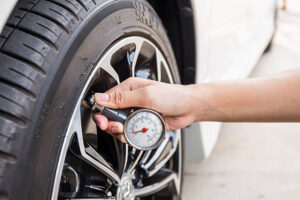Driving in Nigeria during a heatwave can be challenging. The sweltering heat not only impacts your vehicle but also tests your patience and alertness as a driver. To ensure a smooth and safe journey, you need to prepare adequately and adopt certain driving practices tailored to the extreme weather conditions. Here are some essential driving tips to help you navigate Nigeria’s roads during heatwaves.
Understanding the Challenges of Heatwaves on Nigerian Roads
Heatwaves in Nigeria, particularly during the dry season, can lead to:
- Increased risk of engine overheating.
- Tyre blowouts due to expanded air pressure.
- Driver fatigue and dehydration.
- Glare from the sun affecting visibility.
- Poor road conditions exacerbated by heat-induced cracks.
By addressing these challenges proactively, you can protect both yourself and your vehicle.
Top Driving Tips for Heatwave Conditions
1. Check Your Vehicle’s Cooling System
Your car’s cooling system is its first line of defense against overheating. Before hitting the road:
- Inspect the radiator for any leaks or blockages.
- Ensure the coolant level is adequate and topped up with the right mixture.
- Check the radiator hoses for cracks or signs of wear.
- Test the thermostat to ensure it’s functioning properly.
A well-maintained cooling system keeps your engine running smoothly, even in extreme heat.
2. Monitor Tyre Pressure
The intense heat can cause the air inside your tyres to expand, increasing the risk of a blowout. Check your tyre pressure frequently and ensure it is within the recommended range. Also:
- Inspect tyres for visible damage or wear.
- Avoid overloading your vehicle, as this puts extra strain on the tyres.
- Don’t forget the spare tyre; ensure it’s in good condition and properly inflated.
3. Protect Yourself from the Heat
Driving in a heatwave can be physically exhausting. Stay comfortable and alert by:
- Dressing in lightweight, breathable clothing.
- Using a windshield sunshade when parked to reduce cabin temperature.
- Keeping the air conditioning system in good working condition.
- Hydrating frequently and keeping water in the car.
4. Plan Your Journeys Wisely
Avoid driving during peak heat hours (usually between 12 PM and 3 PM). Instead, schedule your trips early in the morning or late in the evening when temperatures are relatively cooler. Additionally:
- Plan your route to avoid areas prone to heavy traffic or poor road conditions.
- Use navigation apps to check for real-time updates on road conditions.
5. Drive Defensively
The heat can make drivers more irritable and impatient. Practicing defensive driving becomes even more critical:
- Maintain a safe following distance to allow for sudden stops.
- Anticipate other drivers’ actions, especially at intersections and roundabouts.
- Stay calm and avoid aggressive driving behaviours.
6. Keep Your Vision Clear
Glare from the sun can significantly reduce visibility. Combat this by:
- Wearing polarised sunglasses.
- Cleaning your windscreen and windows regularly to remove dirt and streaks.
- Ensuring your sun visors are in good condition and using them effectively.
7. Inspect Your Battery
Heatwaves can accelerate battery fluid evaporation, leading to reduced performance. Check your car’s battery for:
- Corrosion on the terminals.
- Proper electrolyte levels.
- Secure connections.
Consider carrying jumper cables as a precaution.
8. Watch Out for Road Hazards
High temperatures can cause asphalt to soften, leading to cracks and potholes. Drive cautiously and:
- Scan the road ahead for potential hazards.
- Slow down when navigating uneven or damaged surfaces.
- Use your hazard lights when necessary to alert other drivers.
9. Maintain Adequate Fuel Levels
Heatwaves can cause fuel to evaporate more quickly, particularly in older vehicles. Always keep your fuel tank at least half full to prevent the fuel pump from overheating and ensure you don’t get stranded.
10. Be Prepared for Emergencies
Carry an emergency kit equipped with:
- A first-aid kit.
- Extra coolant and water.
- A fully charged phone or power bank.
- Reflective triangles and a flashlight.
- Snacks to sustain you in case of delays.
Being prepared can make a significant difference if you face an unexpected breakdown.
Benefits of Adopting These Tips
Following these tips can:
- Reduce the likelihood of vehicle breakdowns.
- Enhance your safety and that of your passengers.
- Minimize stress and discomfort while driving.
- Improve your car’s performance and fuel efficiency.
Conclusion
Driving during a heatwave in Nigeria doesn’t have to be a daunting experience. By preparing your vehicle, protecting yourself from the heat, and adopting safe driving practices, you can navigate the roads with confidence. Remember, your safety and that of others depend on your readiness and attentiveness. Stay cool, stay hydrated, and drive responsibly during Nigeria’s hottest days.




